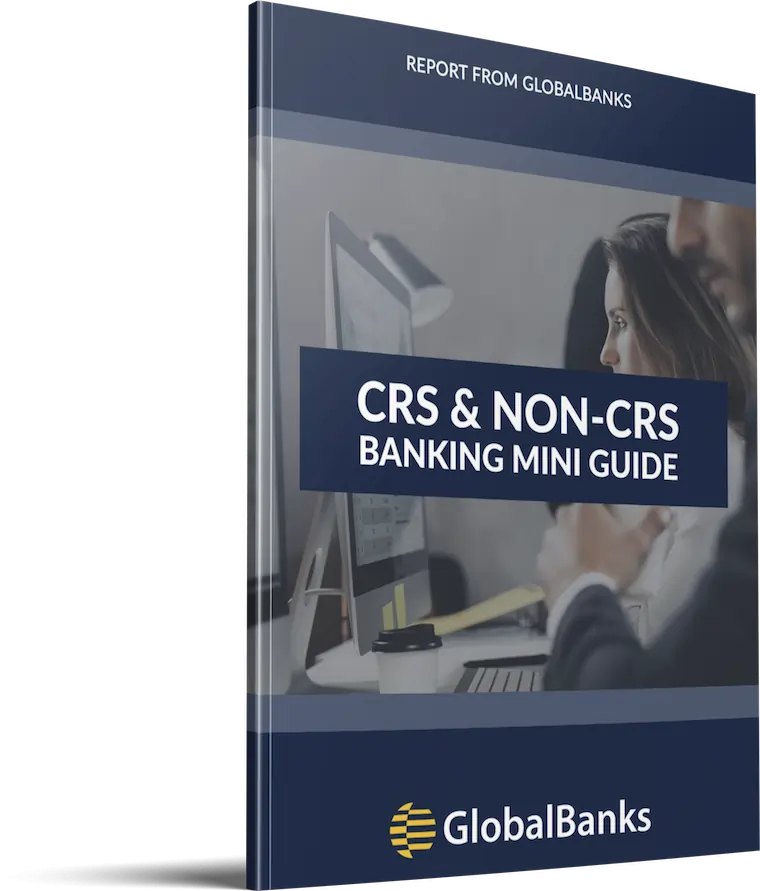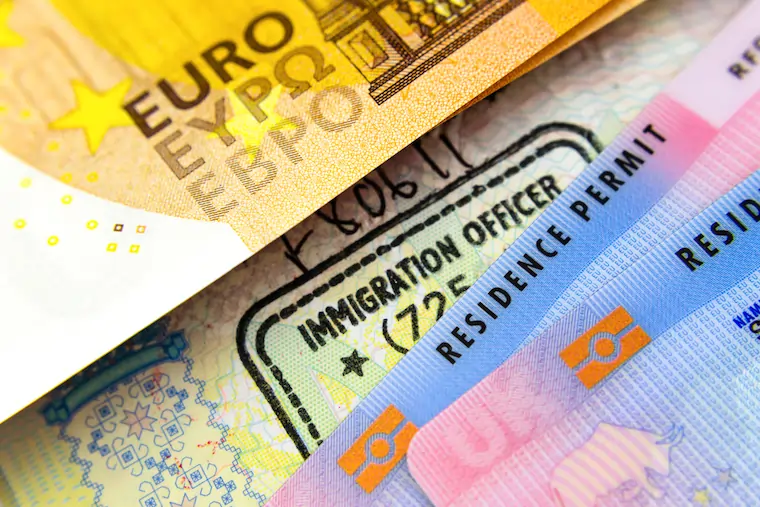
Can a US Citizen Living Abroad Open a Bank Account?
A US citizen living abroad can open a bank account as long as they meet the bank’s account requirements and have a suitable client profile.

| wdt_ID | CRS Countries | First Exchange |
|---|---|---|
| 1 | Albania | 01/09/2018 |
| 2 | Andorra | 01/09/2018 |
| 3 | Anguilla | 01/09/2017 |
| 4 | Antigua | 01/09/2018 |
| 5 | Argentina | 01/09/2017 |
| 6 | Aruba | 01/09/2018 |
| 7 | Australia | 01/09/2018 |
| 8 | Austria | 01/09/2018 |
| 9 | Azerbaijan | 01/09/2018 |
| 10 | Bahamas | 01/09/2018 |
| 11 | Bahrain | 01/09/2018 |
| 12 | Bahrain | 01/09/2018 |
| 13 | Barbados | 01/09/2017 |
| 14 | Belgium | 01/09/2017 |
| 15 | Belize | 01/09/2018 |
| 16 | Bermuda | 01/09/2017 |
| 17 | Brazil | 01/09/2018 |
| 18 | BVI | 01/09/2017 |
| 19 | Bulgaria | 01/09/2017 |
| 20 | Canada | 01/09/2018 |
| 21 | Cayman | 01/09/2017 |
| 22 | Chile | 01/09/2018 |
| 23 | China | 01/09/2018 |
| 24 | Colombia | 01/09/2017 |
| 25 | Cook Islands | 01/09/2018 |
| 26 | Costa Rica | 01/09/2018 |
| 27 | Croatia | 01/09/2017 |
| 28 | Curaçao | 01/09/2017 |
| 29 | Cyprus | 01/09/2017 |
| 30 | Czech Rep. | 01/09/2017 |
| 31 | Denmark | 01/09/2017 |
| 32 | Dominica | 01/09/2020 |
| 33 | Ecuador | 01/09/2020 |
| 34 | Estonia | 01/09/2017 |
| 35 | Faroe Islands | 01/09/2017 |
| 36 | Finland | 01/09/2017 |
| 37 | France | 01/09/2017 |
| 38 | Germany | 01/09/2017 |
| 39 | Ghana | 01/09/2018 |
| 40 | Gibraltar | 01/09/2017 |
| 41 | Greece | 01/09/2017 |
| 42 | Greenland | 01/09/2017 |
| 43 | Grenada | 01/09/2018 |
| 44 | Guernsey | 01/09/2017 |
| 45 | Hong Kong | 01/09/2018 |
| 46 | Hungary | 01/09/2017 |
| 47 | Iceland | 01/09/2017 |
| 48 | India | 01/09/2017 |
| 49 | Indonesia | 01/09/2018 |
| 50 | Ireland | 01/09/2017 |
First, a quick intro to CRS for anyone that doesn’t know…
CRS (the Common Reporting Standard) is the information-sharing system created by the OECD in 2014. It’s used by financial institutions and tax authorities around the world to exchange information about account holders and residents.
What happens after a country becomes a CRS member?
All the banks in that country are obligated to a) confirm the tax residence of each account holder and b) send all the account holder’s financial information to the tax authorities in their country of residence.
And as mentioned above, there are currently 106 CRS countries. And, that list is only growing. We’ve shared a full list of the countries that have signed on to CRS at the bottom of the article, click here if you want to jump there now.
We’ll dive into more detail about CRS, the implications for account holders, and what people are doing to protect themselves in a future article.
For now, let’s focus on the important stuff: What you need to know if you bank in a CRS country and how to avoid expensive mistakes.
If you aren’t 100% okay with your bank reporting your financial holdings to the tax authority in your country of residence, you have a problem.
Likewise, if your tax strategy up until now has involved traveling constantly so you were a “resident of nowhere,” you also have a problem.
In fact, under CRS, if you can’t prove that you have tax residency somewhere, banks will just report your holdings to your home country. And as a bonus, they will also report your account information to any other country where you claim to have tax residency.
This can be a big problem for digital nomads, permanent travelers, and anyone else who hasn’t been keeping up on their taxes. If you fall into any of these groups, the question you need to ask yourself is “what can I do?”
Some people think they can avoid CRS by just “self-certifying” and telling banks that they have residency in a certain country when they really don’t. This is a horrible strategy.
If you can’t provide an active tax identification number or the bank doesn’t believe you, they’ll just send your financial information to the authorities in all the countries where they think you might be a tax resident.
Bottom-line, the information provided by banks in CRS countries helps governments and tax authorities crack down on taxpayers who aren’t paying their taxes or reporting their financial holdings properly.
For instance, because of the financial information that banks are now forced to hand over under CRS, Australian tax authorities just discovered that 370,000 Australian taxpayers had over $100 billion in undisclosed offshore accounts.

Opening bank accounts in non-CRS countries is a popular solution that some digital nomads and people who desire banking privacy are taking to avoid CRS.
But here’s the thing: Information-sharing is here to stay and banking regulations will increase. In the future, most countries will engage in some form of information sharing. So, you’re better off getting prepared now.
Simply opening and closing accounts in countries that have not yet signed information-sharing agreements isn’t sustainable. Plus, it’s incredibly time-consuming.
Why not just plan properly now and acquire residency in a low tax jurisdiction so that CRS is irrelevant? This is an important consideration since it’s only going to get easier for banks and governments to cross-check information. On top of that, most non-CRS countries will eventually sign on or be bullied out of the financial system.
Granted there are exceptions. For instance, one of the most popular (and surprising) members of the non-CRS club is the United States. The US isn’t obligated to share any information with the outside world. But, well get into that another time.
Another example of a popular non-CRS banking option is Georgia (the country not the state). There are a lot of online internationalization gurus that believe Georgia is the future of banking. But they’re wrong.
Don’t get us wrong, we like Georgia as a banking hub… we just don’t love it. There are better options out there.
Heck, we even prepared a premium banking guide for GlobalBanks IQ Members that helps you open accounts remotely and navigate the banking system there. But there are still risks and the absence of CRS isn’t enough of a reason to start transferring all of your money into the country.

We’ve noticed an increasing trend where tax professionals are trying to make CRS sound scarier and far more complicated than it actually is. We found this gem from the Jerusalem Times amusing: Bank account holders in Israel: Pay attention and beware of criminal offenses.
The Jerusalem Times article, like so many others floating around the internet, went on to talk about all of the scary penalties that can arise from CRS. But the only solution given was to, of course, hire their firm for billable hours.
Many people are afraid of CRS. And some of them should be.
But, contrary to what many tax professionals and gurus want you to believe, the solution is actually pretty simple:
1. If you don’t have your taxes in order or aren’t reporting you’re financially holdings properly, it’s time to start.
2. Get tax residency somewhere. Preferably in low tax, no tax, or territorial tax country that minimizes your overall tax burden and simplifies your reporting requirements.
Bank regulations are not only getting stricter, they’re increasing. Banks in any of the 100+ CRS countries are now required to report your financial holdings to the tax authorities in your country of tax residence.
In order to comply with laws and not get hit with massive penalties, banks in CRS countries are now required to know where you have tax residency because they are obligated to send your account information there.
There is no getting around CRS. Information exchange is here to stay and banking laws will only continue to increase.
The best thing that you can do is to get educated, make sure you have the right strategy in place, and take whatever steps are needed to get in compliance. In other words, update your lifestyle and residency strategy for CRS.
You can learn more about the impact of common reporting standards and the automatic exchange of information in the following articles. And keep checking back as we continue to write new articles that focus on your privacy and how governments use your personal information.

A US citizen living abroad can open a bank account as long as they meet the bank’s account requirements and have a suitable client profile.

Advantages of offshore accounts include greater security, lower fees, diversification, & more. Though specific benefits depend on the jurisdiction & bank you open with.

It’s true that foreign non-residents can open accounts with Montenegro banks. And, if you’re wondering if banks here issue IBANs to their
Sorry, but you cannot copy the content on this page.
Javascript not detected. Javascript required for this site to function. Please enable it in your browser settings and refresh this page.